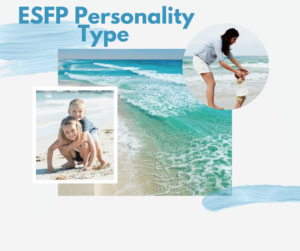By Akanksha Sharma
The ESFP decision making process can be fraught with anxiety, uncertainty, emotional distress and a lot of back and forth. ESFPs, with Se (Extraverted Sensing) Hero have a tendency to gather a lot of information through this perception function. Extraverted Sensing Hero is constantly trying to find out what other people are doing, and the choices they have made with respect to careers, personal life, buying a home, deciding where to live etc. among many other areas. If you’d like to know more details about ESFPs, watch this video by C.S. Joseph on YouTube called ‘Who Are the ESFPs?’.

The ESFP Cognitive Function Stack & Decision Making
Through their Fi (Introverted Feeling) parent function, ESFPs know how they feel about the information that they gather. The Extraverted Thinking (Te) child function helps them organize the Se information into categories and mental models (ways of thinking about the world). One of the biggest pain points for ESFPs can be their Introverted Intuition (Ni) inferior function. The Introverted Intuition (Ni) Inferior function, predisposes them to being fearful about their future. It can manifest as Decision Making Anxiety (or DMA), and experiencing continuous anxiety and worry about the future, can be very demoralizing and debilitating for an ESFP. When individuals of ‘The Duelist’ personality type (as named by C.S. Joseph) are undergoing DMA, they have a tendency to ask a large number of people about their experiences and opinions. Having Introverted Thinking (Ti) as a Trickster function, makes them seek out the truth from other people. In extreme cases, they do so with an almost feverish intensity.
When I consider the DMA faced by ESFPs, I am reminded of two important concepts in mainstream psychology, which I would like to briefly share below:
- Alvin Toffler (1970) in his book Future Shock used the term ‘overchoice’ or choice overload, to describe a cognitive process in which individuals face difficulty in making decisions when there are many options present in front of them.
- Psychologist Barry Schwartz (2004) in his book The Paradox of Choice also speaks about the anxiety that shoppers face when they have too many options in front of them. According to Schwartz, the prospect of plenty of options seems appealing at first, but serves to increase psychological distress as time passes by.
The ESFP personality type Seems to be facing the ‘Problem of Plenty’
As they are gathering copious amounts of information with their Se hero function, they can be worried that they may be missing out on a better prospect if they settle upon any option. Also, this large amount of information in front of them, makes them prone to inaction, because it is cognitively very difficult to weight the pros and cons of each path forward, and then to make an informed decision. Thus, ESFPs can get caught into the trap of inaction.
Here are some ways in which ‘The Duelist’ personality type, can think about the future and its possibilities, that may relieve some decision making anxiety:
- Think of decisions as opportunities to progress and grow. Progress doesn’t have to be scary. The future doesn’t have to be scary. Your future can be very bright. Decisions are choices that can actually lead you towards something good. Taking the right decisions will enable you to grow, which in turn will enable you to have a better and more secure future. In the long run, your worries about the future will be eased and reduced.
- If you fear your introverted intuition or distrust it, then making decisions will help you develop it more. Having hope for the future, leads to confidence in your vision, and it leads to the courage to take those decisions which not only create a positive impact for yourself, but also for society at large. Even if you make mistakes, you will be progressing and moving forward, which is a more desirable state to be in, as compared to inaction. It will be a huge mental breakthrough for any person if they are able to understand this perspective, and are able to slowly learn to trust their intuition.
- Making decisions doesn’t have to be an emotionally fraught roller-coaster, where you are going up and down continuously without any clarity. You don’t have to think of decision making as a mysterious and difficult experience. There are ways to systematise decision making. You can develop your own customised system for decision making. In my next article, I will share my thoughts on how ESFPs can make balanced decisions, and the elements that they should mindfully and deliberately consider while making decisions.
Thank you very much for taking the time out and reading this article. I hope it was of some use to you. If you are an ESFP, and if you’re looking for Psychological Counselling that is tailored to your Personality Type, then do write to me at akanksha.sharma158@gmail.com, to schedule an appointment.
About Me
Apart from being the Founder at Indspire Me, I am a Psychological Counsellor, an Author & a Researcher. Currently, I am pursuing an M.Sc. in Psychology from the University of Madras. I have been a life long learner in the field of Psychology. I also hold two diplomas – one in Psychological Counselling, and one in Relationship Counselling from the KEW Training Academy, UK (accredited by CTAA, UK). If you would like to contact me, you can e-mail me at akanksha.sharma158@gmail.com .